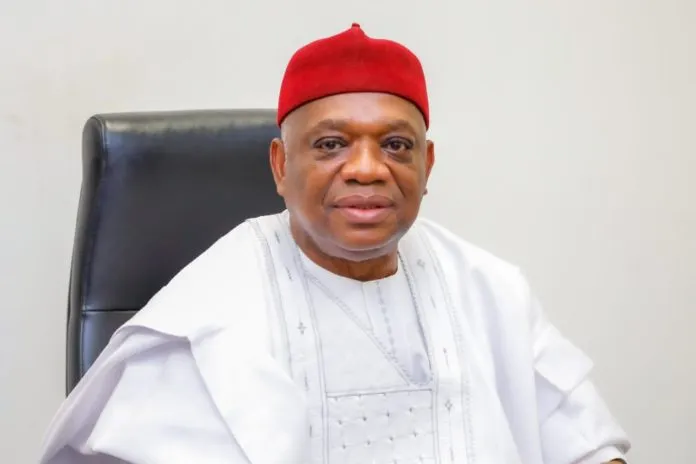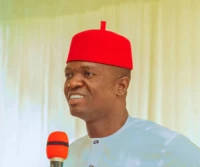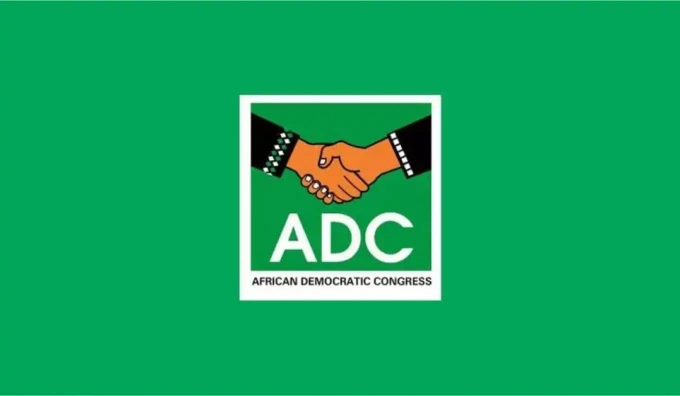In a recent interview on Channels Television, former Abia State Governor and current Senator representing Abia North, Orji Uzor Kalu, disclosed his monthly earnings as a Senator, amounting to N14 million. The lawmaker’s statement comes amidst ongoing debates and speculation about the salaries of Nigerian federal lawmakers, with some reports suggesting figures as high as N21 million per month.
Kalu emphasized that the N14 million he earns covers all his expenses, including overhead costs, staff salaries, and other operational costs. He explained that the salary is not as substantial as many Nigerians believe, contrary to the perception that lawmakers enjoy extravagant lifestyles while the general public faces economic challenges.
The issue of Nigerian lawmakers’ salaries has been a contentious topic for years, with various politicians and commentators questioning whether these earnings align with the country’s economic realities. Kalu’s clarification adds another layer to this debate, providing insight into how lawmakers like himself manage their finances while serving their constituencies.
According to Kalu, the N14 million monthly allowance does not stretch as far as people might expect. He noted that these funds must cover essential expenditures such as maintaining his constituency office, paying workers’ salaries, and buying petrol for his travels to the constituency. The lawmaker suggested that the current allocation is inadequate to effectively manage these responsibilities, highlighting the financial challenges that come with his role.
While some Nigerians may find Kalu’s statement surprising, it sheds light on the realities faced by lawmakers in the Senate. It also raises questions about the adequacy of current allowances for federal lawmakers, especially in light of the rising costs of goods and services in Nigeria.
As the debate continues, Kalu’s remarks serve as a reminder of the complexities surrounding the earnings of Nigerian legislators and the balance they must maintain between personal, official, and constituency expenses. Whether this revelation will lead to more transparency or reforms remains to be seen, but it certainly contributes to a broader discussion on the financial structure of Nigerian governance.











Honestly, if N14 million isnt enough for Orji Uzor Kalu, then what about the average Nigerian struggling to make ends meet? Priorities, man!
Some people will never have enough greed. Disgraceful. Prioritize the people, not personal gain.
Honestly, if N14 million a month isnt cutting it for Orji Uzor Kalu, maybe he should step down. Ridiculous!
I cant believe hes complaining about only making N14 million a month. Talk about being out of touch with reality!
I cant believe hes complaining about only making N14 million a month! Such a disconnect from reality. 🙄
I cant believe hes complaining about only making N14 million a month as a Senator. Talk about being out of touch with reality!
I mean, come on, N14 million a month not enough? Thats like saying water is too wet. Ridiculous!
I cant believe someone would complain about making N14 million a month! Talk about being out of touch with reality.
I cant believe this guy is complaining about only making N14 million a month. Talk about being out of touch!
I cant believe hes complaining about only making N14 million a month! Some people would kill for that kind of salary.
I cant believe hes complaining about only making N14 million a month! Talk about being out of touch with reality.
I cant believe someone would complain about making N14 million a month! Thats more than most people make in a lifetime.
I cant believe hes complaining about only earning N14 million a month! Talk about being out of touch with reality.
I mean, seriously? N14 million a month not enough? Thats just absurd. Greed knows no bounds. #Outrageous #Unbelievable
Some people never have enough. Its sickening. #Disgusting #GreedKnowsNoBounds
I cant believe someone would complain about making N14 million monthly as a Senator. Thats more than most people make in a lifetime!
Must be nice to live in a different reality where thats acceptable.
I cant believe Kalu thinks N14 million a month isnt enough. Most people dont even make that in a lifetime! 🙄
Honestly, if N14 million a month isnt enough for Orji Uzor Kalu, then what is? Talk about being out of touch with reality!
Some people are never satisfied no matter how much they have. Greed knows no bounds.
I cant believe hes complaining about only making N14 million a month. Talk about being out of touch with reality!
I cant believe hes complaining about 14 million a month! Some people dont even make that in a lifetime. Perspective, man.
Maybe if he knew the value of hard work, he wouldnt be complaining.
Honestly, if N14 million a month isnt enough for Orji Uzor Kalu, maybe he needs a reality check. Ridiculous!
I cant believe hes complaining about only making N14 million a month! Talk about being out of touch with reality.
I cant believe he has the audacity to complain about N14 million not being enough. What a disconnect from reality!
Honestly, if N14 million a month isnt enough for a senator, then maybe its time to rethink the whole system. Just saying! 🤷♂️
I cant believe he thinks N14 million a month isnt enough! Most people would be thrilled with even a fraction of that!
I cant believe someone is complaining about N14 million a month. Thats more than most people make in a lifetime!
Wow, seriously? N14 million a month not enough? What planet is he living on? Talk about being out of touch!
I find it hard to sympathize with Kalus complaint. Many people struggle to make ends meet on far less.
I cant believe he complained about only earning N14 million a month. Such a disconnect from reality!